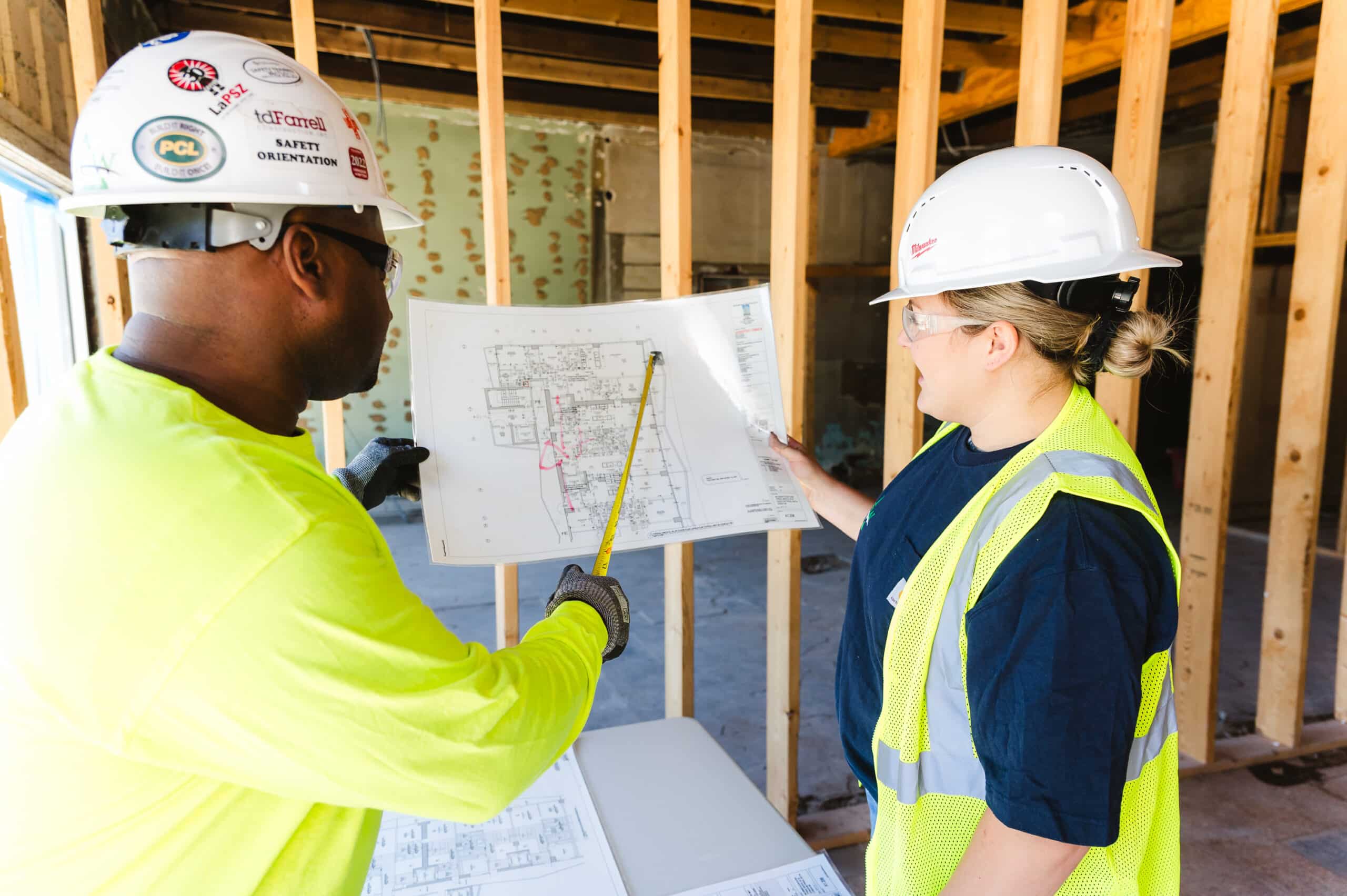
What is Construction Engineering?
Construction engineering jobs are some of the most important roles when it comes to building and designing in today’s world. These critical jobs transform blueprints into the buildings, bridges, and roads we rely on daily. But behind every successful project is the meticulous work of construction engineers. This specialized engineering field is integral to the construction industry, ensuring that structures are safe, functional, and sustainable. Let’s dive into how construction engineering shapes the industry in three ways and how staffing agencies like NCW connect skilled engineers with the right opportunities.
1. Structural Design
When we admire towering skyscrapers, expansive bridges, or even our own homes, we rarely think about the complex process that brought them to life. The design phase is at the heart of every successful construction project, where construction engineers play a vital role. These engineers collaborate with architects to transform conceptual ideas into practical, feasible designs. They calculate the loads, materials, and structural integrity required to ensure that the building will stand the test of time and meet all safety standards.
Construction engineering involves not just theoretical knowledge but also practical problem-solving. Engineers must consider factors like local environmental conditions, material availability, and cost constraints. For example, when designing a bridge in an earthquake-prone area, a construction engineer must account for seismic activity and choose materials and designs that can withstand potential tremors. This blend of creativity and technical expertise is what makes construction engineering so essential to the design process.
2. Overseeing Construction Projects
Once the designs are finalized, the actual construction work begins—and this is where construction engineering truly shines. Construction engineers oversee the entire building process, ensuring that everything goes according to plan. They work closely with contractors, laborers, and other engineers to coordinate the construction activities, manage resources, and resolve any issues that arise on-site.
One of the most significant responsibilities of a construction engineer during this phase is quality control. They inspect the materials used, monitor the workmanship, and ensure that all safety protocols are strictly followed. If unexpected challenges occur, such as unanticipated ground conditions or material shortages, construction engineers must quickly devise solutions to keep the project on track.
Moreover, construction engineers are responsible for keeping projects within budget and on schedule. They develop detailed project plans, track progress, and make adjustments as needed to avoid costly delays or overruns. Their role as project managers is crucial in delivering successful construction projects that meet the client’s expectations.

3. Implementing Sustainable Practices
Sustainability has become a buzzword in recent years and for a good reason. With growing awareness of environmental impact, the construction industry is increasingly focused on sustainable practices—and construction engineers are at the forefront of this movement. By incorporating green building techniques, energy-efficient materials, and innovative technologies, construction engineers help create structures that are not only environmentally friendly but also cost-effective in the long run.
Construction engineering plays a pivotal role in reducing the carbon footprint of buildings. Engineers design systems that minimize energy consumption, such as advanced HVAC systems, solar panels, and energy-efficient lighting. They also focus on reducing waste by choosing materials that are recyclable or have a lower environmental impact. For instance, using locally sourced materials can reduce transportation emissions, while designing buildings that utilize natural light can significantly cut down on energy use.
Furthermore, construction engineers are exploring the use of sustainable materials, such as recycled steel, bamboo, and low-carbon concrete, to replace traditional building materials. These innovations not only contribute to environmental conservation but also often result in long-term cost savings for building owners.
How Staffing Agencies Find Construction Engineers Jobs
With such a critical role in the construction industry, it’s no wonder that skilled construction engineers are in high demand. However, finding the right job can be challenging, especially in a competitive market. This is where staffing agencies like NCW come into play.
NCW specializes in connecting qualified engineers with top employers in the construction industry. Their experienced recruiters understand the unique skills required for construction engineering roles. NCW’s team works diligently to match candidates with positions that align with their expertise and career goals. Whether you’re a seasoned professional or just starting in the field, NCW can help you navigate the job market to save you time and energy in the process.
With engineering jobs being such a vital component of the construction industry, the demand for skilled engineers continues to grow. As previously mentioned, staffing agencies like NCW can be incredibly helpful. If you are interested in connecting with an NCW team member to start your engineering journey, submit your information here and a team member will reach out as soon as possible!
